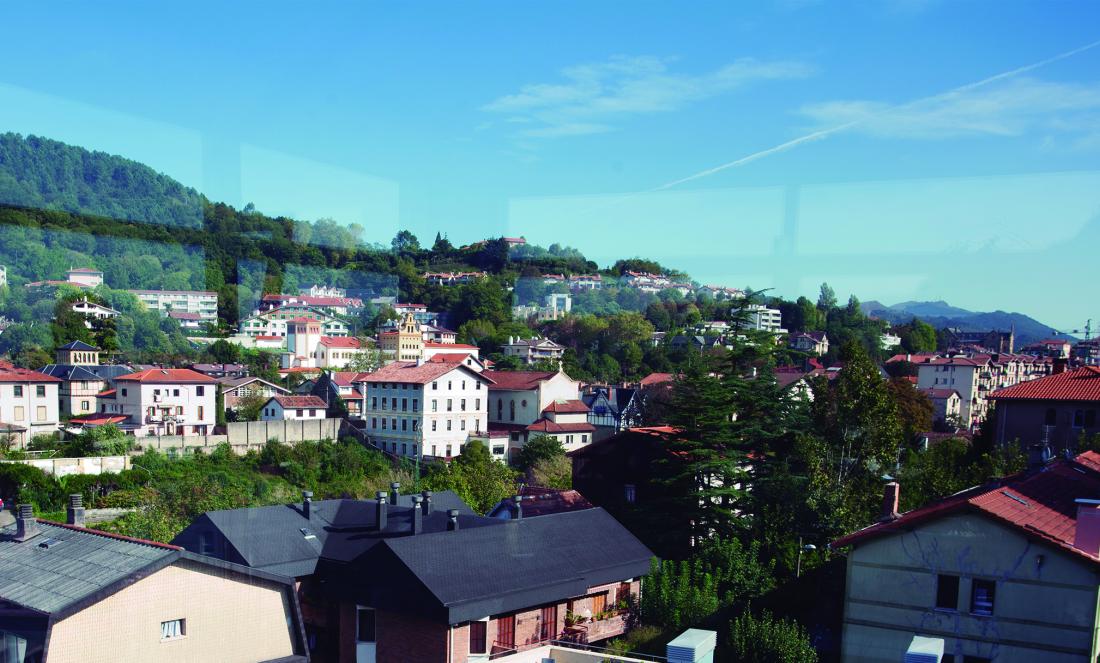
Friendliness, active ageing and citizenship
The Age-Friendly Cities movement was launched by the World Health Organization (WHO) in 2005 at the 18th World Congress of Gerontology in Rio de Janeiro under the name of Age-Friendly Cities.
The ideologue of this initiative, Dr. Alexandre Kalache, at that time Director of the WHO Ageing and Life Course Programme, launched this programme based on two characteristic trends in contemporary world population: demographic ageing and the process of urbanization. We live in increasingly aging societies and increasingly urbanized environments, large cities. This initiative is born from the attempt to respond to these two trends, with the main objective of making the most of the potential offered by older citizens. It seeks to promote a great process of citizen participation led by older people as generators of well-being.
"An elder-friendly city is an inclusive and accessible urban environment that promotes active ageing". This initiative is based on the theory underlying this paradigm which was defined in 2002 (Second World Assembly on Ageing) in the document "Active ageing, a policy framework". This paradigm, of such great dimensions, has undergone a process of certain trivialisation since then and has been associated with any activity aimed at older people that had a "positive", "activist" focus, becoming a qualifier that is associated with programmes where the older person is given a role as a mere spectator, consumer or user, leaving aside their facet linked to involvement in activities and decision-making, participation.
In the friendliness programme, for the first time, older people are the protagonists of a process of generating well-being that will affect our daily lives, calling for a more rational recovery of public spaces, relations between citizens, transfers of care ... all those little things that make daily life in the city a little more humane and satisfactory for everyone.
The programme began with 33 pilots in cities around the world, from New York, Rio de Janeiro, Tokyo, Istanbul and Kenya, to measure their degree of friendliness. From this research, the Guide: Global Age Friendly Cities was developed and published on 1 October 2007 on the occasion of the International Day of Older Persons. This Guide, together with the Vancouver protocol, has served as a methodological basis for the development of the first phase of diagnosis in other cities worldwide.
Since then, a Global Network of Friendly Cities and Communities has been formed, coordinated by the WHO. In Spain, the IMSERSO signed a collaboration agreement with this entity to create an Ibero-American Network of Friendly Cities and Communities with the elderly, where all the initiatives from Spain and Latin America can be brought together. At the 1st International Congress on Friendly Cities and Communities, held in Ireland in September 2011, mayors and local authorities representing 38 municipalities from all over the world signed the Dublin Declaration. This Declaration contains the values and principles to which the municipalities adhering to this initiative are committed. In June this year 40 more cities signed this commitment at the A.H.A. Conference. In September 2013, the 2nd International Congress of Friendly Cities and Communities will be held in Quebec under the theme: Living and Ageing Together in our Community.
The development of this initiative in the municipalities is characterized by following a working methodology marked by the WHO in 4 phases, following a cycle of continuous improvement (1. Planning, 2.) This process is governed by the principles of action research based on eight areas of intervention: open spaces and buildings, transport, housing, social participation, respect and social inclusion, civic participation and employment, communication and information, and social and health services. Placing ageing at the centre of policy decisions, acting in areas that go beyond social services or health, from an inclusive and transversal perspective. The working methodology is also based on the "Bottom up" approach, in which the participation of citizens in general and older people in particular is the main basis that supports this project.
The initiative was born with the name Age-Friendly Cities, but its development and evolution resulted in a change of name, replacing Cities with Environments, environments, as all kinds of spaces could adhere to the movement and improve in friendliness.
The first Spanish city to form part of the WHO Global Network was Donostia-San Sebastián. This is the city that Matia Instituto worked with in 2009 to prepare a detailed and precise report on the degree of friendliness of the city and which concluded with almost 200 proposals for improvement generated in the focus groups. We leave you a video that explains this process. The City Council is currently reviewing and validating this document for the development of the Action Plan on the friendliness of the city.
The Department of Employment and Social Policies of the Basque Government has also joined the friendliness movement by promoting citizen participation for the improvement of neighbourhoods and environments in the municipalities of the Basque Country through its Euskadi Lagunkoia (Friendly Basque Country) project. This project, in which the Matia Institute also works providing advisory and methodological support, aims to generate a network of friendly initiatives in the Basque Country. In this way, pilot programmes are being carried out in different municipalities to generate common tools that can be used by the rest, as well as promoting the adhesion of other types of entities that carry out initiatives in favour of friendliness.
Without a doubt, in these 8 years of activity since the programme was launched, progress has been extraordinary. The support of the WHO, as an international organization of reference, of the IMSERSO-CEAPAT at state level, and of all the municipalities and environments that have joined this initiative, both at international and national level, has exceeded all the expectations generated and has meant an enormous commitment to a versatile and flexible program that adapts to all types of environments in which the common objective is to generate a citizen movement of innovation and social co-responsibility to improve the friendliness of environments with the elderly as protagonists.



Add new comment